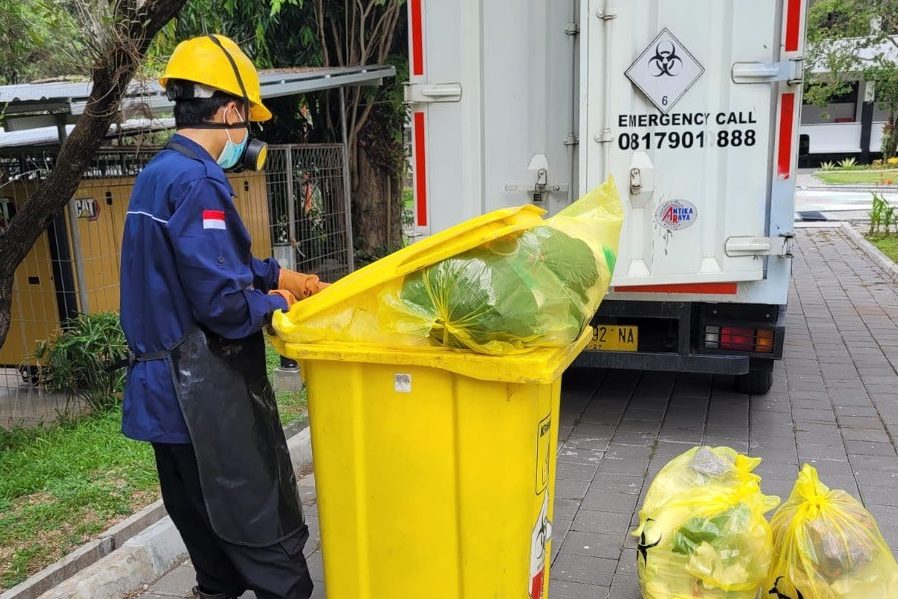As an educational institution, FKG UGM provides laboratories for students to carry out practical activities. After the practical sessions, items such as gloves, syringes, and leftover chemicals are discarded. At first glance, this medical waste might appear to be ordinary items that are easy to throw away. However, these items pose potential environmental hazards if not properly managed.
The Integrated Research Laboratory (LRT) of the Faculty of Dentistry at Universitas Gadjah Mada (FKG UGM) has partnered with PT. Riffa Utama Mandiri to strengthen its commitment to environmental preservation through the proper management of medical waste (26 September).
This event was attended by laboratory technicians to ensure that research waste is managed according to established standards. Ari Jimi, a laboratory technician, stated that various types of waste are generated from research activities at the LRT, including hazardous chemicals (B3), microbial growth media, and pathological waste.
Each type of waste is categorized and packaged according to waste management standards, such as infectious waste stored in biohazard plastic bags. “Liquid waste is also managed separately based on its chemical nature, whether acidic, alkaline, or biological liquid waste,” said Ari Jimi.
As a research and testing facility, the Integrated Research Laboratory offers diverse resources and materials. The available laboratories are divided into several fields, including Physics, Physicochemical, Histology, Microbiology, Molecular Biology, and Mechanics.
By implementing comprehensive waste management measures, the LRT and FKG UGM play an active role in maintaining campus environmental cleanliness and health. These efforts also minimize the risk of negative impacts on public health and support the achievement of the Sustainable Development Goals (SDGs), particularly Goal 3 (Good Health and Well-being), Goal 4 (Quality Education), Goal 6 (Clean Water and Sanitation), Goal 9 (Industry, Innovation, and Infrastructure), and Goal 17 (Partnerships to Achieve the Goals).
Authors: Ari Jimi Febriyanto, Al Haqi Insan Pratama | Editor: Fajar Budi H.

